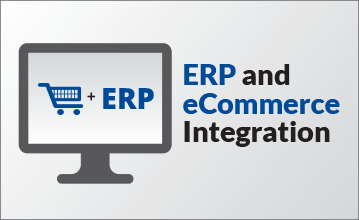
Why Should You Integrate ERP with Your Ecommerce Store?
Integrating ERP with your Ecommerce store is a strategic move that can transform your business operations. By combining these powerful systems, you streamline processes, enhance efficiency, and improve overall performance. In this blog post, we will explore the compelling reasons why should you integrate ERP with your Ecommerce store is essential for success.
What is ERP and Why is Integration Important?
ERP, or Enterprise Resource Planning, is a comprehensive software system designed to manage business processes. Integrating ERP with your Ecommerce store connects these two crucial systems. This integration ensures that data flows seamlessly between them, eliminating the need for manual data entry and reducing errors.
1. Streamline Operations
One of the main reasons to integrate ERP with your Ecommerce store is to streamline operations. When ERP and Ecommerce systems are connected, you can automate order processing, inventory management, and customer service. For example, when a customer places an order, the ERP system can automatically update inventory levels. This reduces the risk of overselling and ensures that stock levels are accurate.
2. Improve Data Accuracy
Data accuracy is crucial for any business. Integrating ERP with your Ecommerce store improves data accuracy by synchronizing information across both systems. This integration reduces the need for manual data entry, which is prone to errors. With accurate data, you can make better decisions and avoid costly mistakes.
3. Enhance Customer Experience
A seamless integration between ERP and your Ecommerce store enhances the customer experience. Customers expect real-time updates on their orders, including shipping status and delivery times. An integrated system ensures that customers receive accurate and timely information. Additionally, it allows for efficient handling of returns and exchanges, further improving customer satisfaction.
4. Optimize Inventory Management
Effective inventory management is key to a successful Ecommerce business. By integrating ERP with your Ecommerce store, you gain better control over inventory levels. The ERP system provides real-time visibility into stock levels, helping you avoid stockouts and overstock situations. This optimization leads to more efficient inventory management and reduces holding costs.
5. Automate Financial Processes
Integrating ERP with your Ecommerce store automates financial processes, such as invoicing and accounting. When a customer makes a purchase, the ERP system can automatically generate an invoice and update the accounting records. This automation reduces the risk of human error and ensures that financial data is accurate and up-to-date.
6. Gain Comprehensive Insights
An integrated ERP and Ecommerce system provides comprehensive insights into your business operations. You can access real-time data on sales, inventory, and customer behavior. These insights help you make informed decisions and identify areas for improvement. For example, analyzing sales data can help you identify which products are most popular and adjust your inventory accordingly.
7. Enhance Scalability
As your business grows, your Ecommerce and ERP systems need to scale with it. Integration ensures that both systems can handle increased transaction volumes and more complex operations. With an integrated system, you can easily expand your product offerings, enter new markets, and manage increased customer demands without disrupting your operations.
8. Improve Supplier and Vendor Management
Managing suppliers and vendors effectively is crucial for maintaining a smooth supply chain. Integrating ERP with your Ecommerce store improves supplier and vendor management by providing real-time data on inventory levels and order statuses. This integration allows you to communicate more efficiently with suppliers and make informed decisions about restocking and procurement.
9. Increase Operational Efficiency
Operational efficiency is a major benefit of integrating ERP with your Ecommerce store. The integration automates routine tasks and reduces manual data entry, freeing up time for your team to focus on more strategic activities. This increased efficiency leads to faster order fulfillment, better customer service, and overall improved business performance.
10. Strengthen Data Security
Data security is a top priority for any business. Integrating ERP with your Ecommerce store enhances data security by centralizing information and implementing robust security measures. With both systems working together, you can better protect sensitive customer and financial data from unauthorized access and potential breaches.
Conclusion
Integrating ERP with your Ecommerce store offers numerous benefits that can significantly impact your business. By streamlining operations, improving data accuracy, and enhancing customer experience, you set your business up for success. Additionally, optimizing inventory management, automating financial processes, and gaining comprehensive insights further strengthen your operations.
In summary, integrating ERP with your Ecommerce store is a strategic investment that leads to increased efficiency, scalability, and security. By making this integration a priority, you position your business for growth and success in the competitive Ecommerce landscape. Start reaping the benefits of ERP integration today and watch your business thrive.
